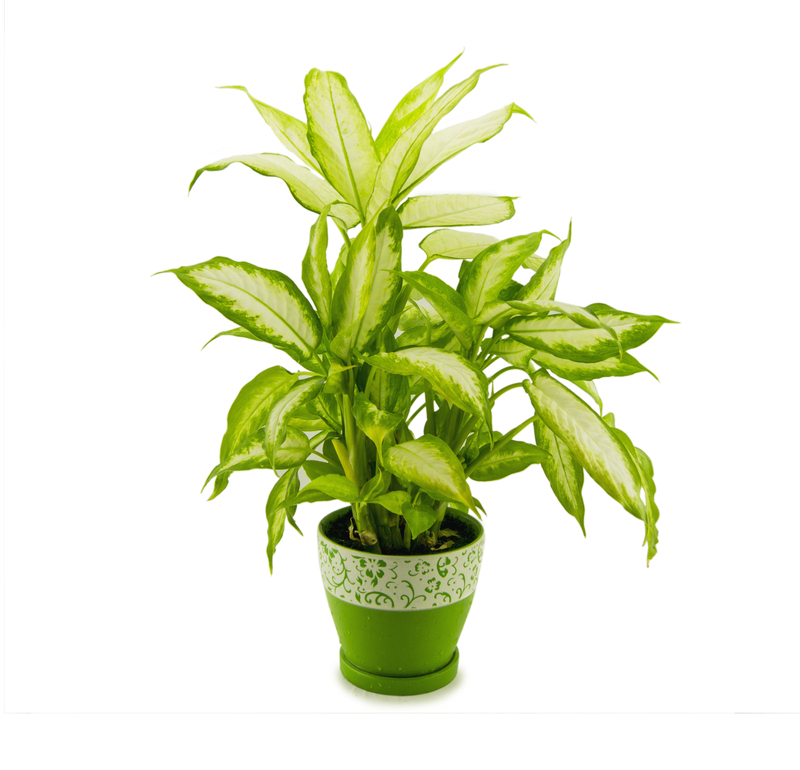Revitalizing Earth's Bounty with Organic Waste
Posted on 03/10/2025
Revitalizing Earth's Bounty with Organic Waste: A Comprehensive Guide
Organic waste represents both a global challenge and an unprecedented opportunity. As modern societies strive to create a more sustainable future, the transformation and recycling of organic materials have become pivotal in environmental conversations. Revitalizing Earth's bounty with organic waste not only benefits ecosystems but also unlocks fertile ground for economic, social, and agricultural advancements. This article delves into the vital importance of organic waste management, best practices, and how communities and individuals can contribute to a healthier planet.
Understanding Organic Waste and Its Impact
What is Organic Waste?
- Food scraps (fruits, vegetables, grains, dairy)
- Garden and yard trimmings
- Animal and plant-based materials
- Paper products (uncoated and biodegradable)
- Biodegradable household items
Organic waste refers to any material that originates from living organisms and can be broken down by other living organisms. Common sources include household kitchens, food processing facilities, farms, and landscaping activities. Unlike inorganic or hazardous waste, organic refuse is naturally biodegradable and, when managed responsibly, can return vital nutrients to our soils and ecosystems.
The Problem with Wasted Organics
When organic waste is sent to landfills instead of being recycled or composted, it decomposes anaerobically (without oxygen), producing methane--a potent greenhouse gas that significantly contributes to climate change. In the United States alone, food waste accounts for over 30 percent of total landfill content, translating to wasted resources and environmental harm.

The Benefits of Revitalizing Earth's Bounty Using Organic Waste
1. Soil Enrichment and Reduced Chemical Dependency
Composting organic matter returns crucial nutrients to the soil, making it more fertile and robust. This process enhances water retention, reduces erosion, and lessens the need for synthetic fertilizers that can damage the environment. Embracing organic waste solutions leads to healthier crops and greater biodiversity.
2. Carbon Sequestration
When organic materials decompose aerobically (in the presence of oxygen), the process contributes to carbon sequestration. Compost-rich soils act as carbon sinks, trapping carbon dioxide and helping to mitigate climate change. This natural solution plays a large role in revitalizing Earth's resources.
3. Waste Reduction and Resource Repair
- Minimizes landfill volumes
- Diminishes landfill methane emissions
- Encourages responsible consumption patterns
- Promotes a circular economy
Proper management of organic byproducts ensures that these vital materials are cycled back into productive use, restoring Earth's bounty.
Key Methods for Harnessing Organic Waste
1. Home Composting
Home composting is among the most accessible and effective strategies. Kitchen scraps, garden waste, coffee grounds, and even eggshells can be composted at home with little investment. With a basic compost bin and some education on green and brown layering, households can convert waste into nutrient-rich humus for gardens and plants.
2. Industrial Composting Facilities
Municipalities and businesses can invest in large-scale composting plants that process vast quantities of organic material. These facilities often handle food scraps from supermarkets, restaurants, and food processors, transforming them into high-quality soil amendments distributed to farms and gardens.
3. Anaerobic Digestion
This advanced technology decomposes organic materials in oxygen-free environments, producing biogas (a renewable energy source) and nutrient-dense digestate suitable for use as fertilizer. Anaerobic digesters are popular in agricultural settings, where animal manure and crop residues are abundant. This method supports both clean energy creation and regenerative agriculture.
4. Vermicomposting (Worm Composting)
Employing redworms to break down kitchen waste is a fast-growing trend, especially in urban areas. Vermicomposting bins are compact and efficient, allowing even apartment dwellers to revitalize Earth's bounty with their organic leftovers. The result is an especially rich compost known as worm castings.
How Organic Waste Supports the Regeneration of Our Planet
Boosting Soil Health and Agricultural Productivity
The inclusion of organic materials like compost and mulch ensures that soils retain moisture, nutrients, and beneficial microbial populations. This leads to improved crop yields, stronger root systems, and healthier livestock. In turn, farms become more resilient to droughts and extreme weather.
Enhancing Biodiversity
Revitalizing Earth's bounty by returning organics to the environment protects native plant species and enables the flourishing of pollinators and beneficial insects. Compost-treated fields often observe fewer pests and require fewer chemical interventions. Rewilding landscapes with the help of organic matter restores balance and supports endangered species.
Supporting Local Economies
- Creates green jobs in waste management and compost production
- Reduces municipal waste management costs
- Promotes community-supported agriculture and urban farming
- Fosters environmental education and stewardship
From community composting initiatives to metropolitan anaerobic digestion plants, organic resource management is driving new economic models centered on sustainability.
Best Practices for Maximizing the Benefits of Organic Waste
Segregation at Source
Effectively revitalizing Earth's bounty with organic leftovers begins at home or the business site. Segregating organic from inorganic and hazardous wastes ensures the purity and effectiveness of composting processes. Clear labeling and education can make a significant difference.
Invest in Durable Infrastructure
Whether at home, in community gardens, or on citywide scales, investment in robust compost bins, collection vehicles, and processing facilities is crucial. Infrastructure should be tailored to local needs, taking into account climate, waste volumes, and available space.
Community Engagement and Education
Organic waste recovery succeeds best with collective effort. Public workshops, school programs, and digital campaigns that highlight the benefits of waste separation, composting, and regenerative agriculture can empower entire communities to rejuvenate the land.
Local Laws and Incentives
Governments play an essential role by enacting policies that encourage or mandate organic waste diversion. Financial incentives, compost giveaways, and household collection programs can accelerate the transition to a circular organic economy.
Monitor and Improve
Tracking waste diversion, compost quality, and soil impact helps identify strengths and opportunities for improvement. Ongoing assessment ensures the greatest benefit from every banana peel and lawn clipping returned to the Earth.
Global Examples: How the World is Reenergizing Its Bounty
San Francisco's Zero Waste Initiative
San Francisco is a leader in organic waste recycling--its citywide composting program diverts over 1.5 million tons of food and yard waste annually, providing nutrient-rich material to local vineyards and farms.
Rural India's Biogas Plants
In India, small-scale biogas digesters have transformed rural energy access. Animal manure and kitchen scraps are converted into fuel for cooking and lighting, while leftover digestate fertilizes crops and improves agriculture.
European Union's Circular Economy Action Plan
The EU has prioritized organic waste valorization through strict landfill bans, widespread composting, and research into bioplastics made from food residues. Their approach is generating jobs and reducing environmental burdens.
Challenges and How to Overcome Them
Contamination With Inorganic Waste
Plastic, glass, or metal mixed with organics can contaminate compost, rendering it unusable. Education and source separation aided by clear signage and awareness campaigns are key solutions.
Lack of Infrastructure
Developing composting and digestion facilities requires investment and local governmental support. Partnerships with NGOs and the private sector often provide the necessary expertise and financing to kickstart these projects.
Odor and Pest Concerns
With proper management--adequate aeration, the right mix of carbon and nitrogen, and regular monitoring--these concerns can be mitigated, making composting feasible in even dense urban contexts.

10 Actionable Steps You Can Take
- Start a backyard or balcony compost pile or bin.
- Join or advocate for local food scrap collection programs.
- Avoid single-use plastics that complicate composting efforts.
- Choose local produce to minimize food spoilage and waste.
- Educate family and friends about the benefits of organic waste recycling.
- Volunteer at or donate to community gardens and composting sites.
- Practice zero-waste cooking to minimize kitchen scraps.
- Use finished compost to enrich houseplants or landscaping.
- Support policies and brands promoting organic-centric waste solutions.
- Share your composting journey on social media to inspire others.
The Future of Earth's Bounty: Toward a Sustainable Tomorrow
With global populations rising and ecological pressures mounting, revitalizing the Earth's bounty with organic waste is both a challenge and a promise. Embracing composting, biogas, and other regenerative technologies points toward a future where waste is not an afterthought, but a valuable resource in our quest for sustainability. As individuals, communities, and nations transform consumption patterns, every vegetable peel and coffee ground can play a pivotal role in restoring our planet's vitality.
In Conclusion
Organic waste revitalization is more than just an eco-friendly trend--it's essential for restoring ecosystems, nourishing soils, fighting climate change, and building a more resilient society. Each step taken, whether at home or on the policy level, brings us closer to a world where nothing valuable is wasted and Earth's bounty is cherished for generations to come.
Let's work together to unlock the true power of organic waste--joining hands to rejuvenate our planet and secure a greener future for all!
Latest Posts
Revitalizing Earth's Bounty with Organic Waste
Nurturing Nature's Playground: Building a Kid-friendly Garden
Unleash the joy of gardening by creating your own herb paradise

